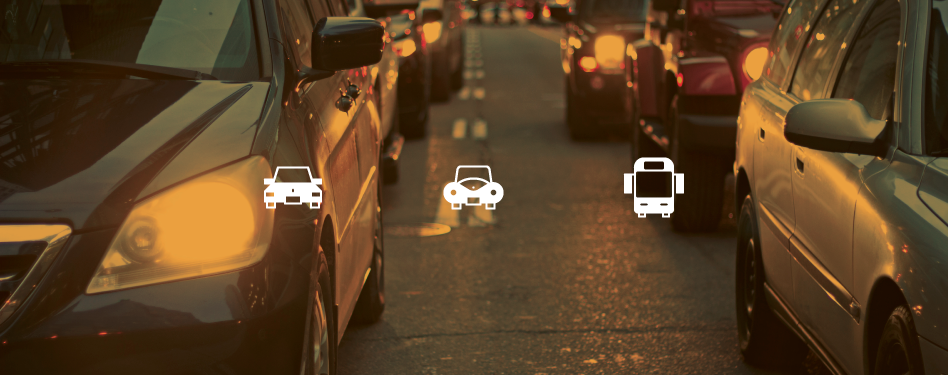
Smart Parking is a parking strategy that combines technology and human innovation in an effort to use as few resources as possible—such as fuel, time and space—to achieve faster, easier and denser parking of vehicles for the majority of time they remain idle.
Smart Parking and its sister approach, Intelligent Transportation, are based on the fundamental ecological principle that we are all connected. Parking and transportation are both essential in the movement of people and goods. The Smart Parking and Intelligent Transportation vision and overlapping technologies are steadily melding into one integrated stream.
Take the below scenario, for example:
In the not-too-distant future, you will be sitting at your kitchen table contemplating your plans for shopping, dinner, a movie and your favorite seat at your special watering hole. Since you want to have a place to stash your purchases before you head off for your evening’s pleasures, you opt to drive. You enter your destinations into your laptop/smartphone/tablet, let the app know that you don’t mind walking a bit to get a lower parking price, that you only want to park once, you don’t need electric vehicle charging and you don’t care whether the parking is on-street, off-street, covered or uncovered.
The app gives you three low price options, including the probability of (likely underpriced) on-street spots or two more expensive but reservable off-street spots. You opt for the reserved spot in the garage because it houses a bubble tea shop you like in its retail space. Then, you pay in advance with your credit card and receive an emailed $2-off coupon for the bubble tea.
Later, after the Home Depot run, the half-hour faucet washer repair that took two hours and a nice hot shower, you settle into your car and call up your trip on your GPS system, to which your app fed your trip information. It turns out there’s an accident on your normal route into town, and some construction too, so the GPS automatically reroutes you to a faster alternate route. You arrive in good time, the garage recognizes your car as you drive in and the internal garage’s wayfinding system guides you to your reserved parking spot.
This could be the future of parking: a smart system that seamlessly integrates with your plans and activities to move people around from home to work to errands and back again.
